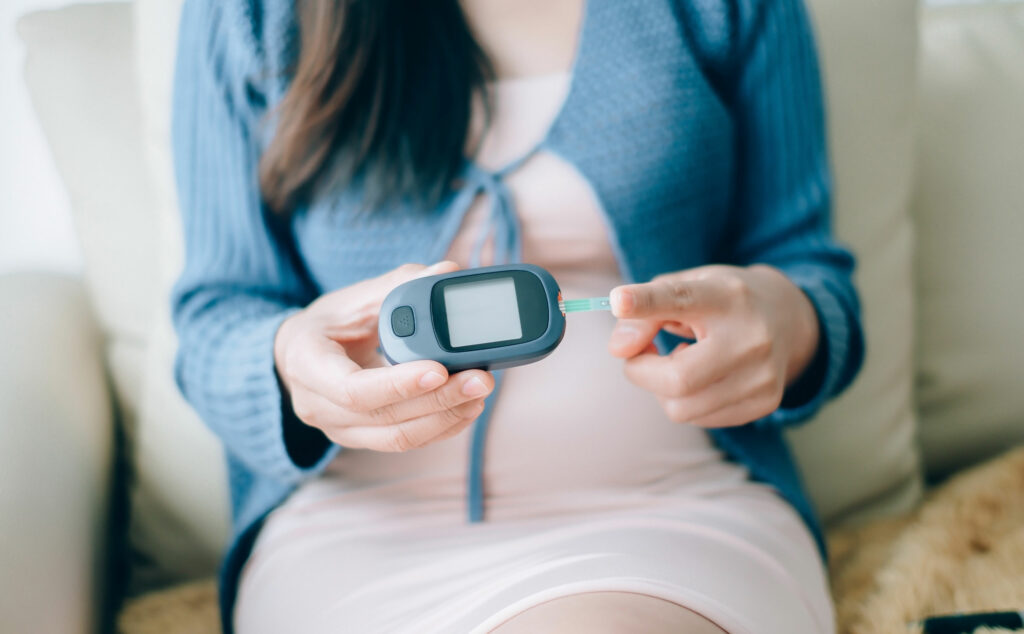Gestational diabetes, also known as type 3 diabetes, is a variant that is first diagnosed during pregnancy, affecting the way cells use sugar, just like other types of diabetes.
What is gestational diabetes?
The hormones present during pregnancy can hinder the insulin’s work, causing an alteration in the metabolism of carbohydrates, resulting in hyperglycemia (glucose spike).
In this way, gestational diabetes can lead to complications such as macrosomia (excessively large children) or other complications at birth. This is why it is important to control sugar levels. Glucose levels that result in these complications are levels that, out of pregnancy, would be considered normal.
What symptoms does gestational diabetes have?
Gestational diabetes usually does not cause noticeable signs or symptoms, although increased thirst and urination (the need to urinate often) are recurring symptoms.
Having such indiscernible symptoms, it is recommended to be in contact with your doctor to perform routine pregnancy tests and controls.
How is gestational diabetes diagnosed?
Different risk factors must be considered to rule out or detect gestational diabetes. Among the risk factors are having had gestational diabetes in a previous pregnancy, repeated miscarriages, a family history of diabetes, or being associated with insulin resistance in all its varieties.
In case of not having the previously indicated factors, the doctor must rule out gestational diabetes between weeks 24 and 28 of pregnancy.
To accomplish this, the doctor may use two types of tests:
- Initial glucose challenge test. The patient will drink a syrupy glucose solution, and a blood test will be performed to measure blood sugar levels.
- Oral follow-up glucose tolerance testing. Test similar to the initial one, but in this case, the sweet solution will have even more sugar and blood sugar will be checked every hour for three hours.
Gestational diabetes care and prevention
Gestational diabetes is a disease that can be normally controlled with a healthy diet and regular exercise; sometimes insulin will be necessary.
Women with gestational diabetes should monitor their capillary blood glucose to confirm that the desired levels are reached.
After the baby is born, the doctor will check the glucose levels at six and 12 weeks, and if deemed appropriate, the risk of diabetes should be evaluated every three years.
At ABC Medical Center’s Diabetes Clinic, we can provide you with specialized care. Contact us!
Fuente
https://centromedicoabc.com/medicina-interna/clinica-de-diabetes/
https://www.mayoclinic.org/es/diseases-conditions/gestational-diabetes/symptoms-causes/syc-20355339
https://www.cdc.gov/pregnancy/spanish/diabetes-gestational.html#:~:text=La%20diabetes%20gestacional%20es%20un,a%20la%20mitad%20del%20embarazo
https://www.fundaciondiabetes.org/general/441/diabetes-gestacional



